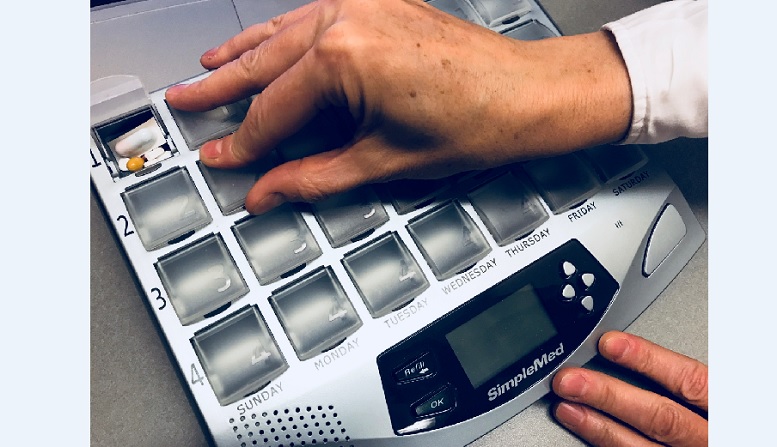Doctors are constantly frustrated by patients who don’t take the full programme of medications prescribed. For one thing, with antibiotics it can lead to bacterial resistance, but in cases like transplants or grafts, it can be life threatening.
A recent innovative trial explored a method to help kidney graft patients remember to take their anti-rejection drugs.
The international trial was led by McGill professor, Dr Bethany Foster (MD, MSc) a paediatric nephrologist and scientist at the Research Institute of the McGill University Health Centre (RI-MUHC) and the Montreal Children’s Hospital of the MUHC,
ListenIt’s called “adherence”, that is, adherence to the prescription of taking all the drugs and at the necessary time and intervals and younger people have a greater tendency to let their medication schedule slide.

Audrey Grenier (right) received a kidney transplant when she was 13-years-old and participated in the TAKE-IT clinical trial led by Dr. Bethany Foster (left), paediatric nephrologist at the Montreal Children’s Hospital and scientist at the Research Institute of the MUHC PHOTO supplied MUHC
Indeed adherence is a serious problem for some 15 to 30 per cent of children in North America who have a chronic illness.
In terms of transplants this is especially dangerous, as without a steady level of anti-rejection drugs, the body can begin to reject the transplant leading to a host of problems. Not only does this have very serious implications for the patient, but it also can impose a huge drain on hospital resources and budgets.
“Missing your anti-rejection medicine, even only a few times, can lead to graft failure,” says Dr. Foster, “Given the shortage of organs available for transplant, every failure is not only a loss for the patient but also a loss for the transplant community.”
To seek solutions to the issue of a lack of adherence among young people, transplant specialists and researchers from eight leading paediatric medical centres across Canada and the United States conducted a clinical trial named TAKE-IT involving young kidney graft patients.
This involved testing a new intervention policy and technology to improve adherence to treatment among adolescent kidney transplant recipients.
Their results are published today online in The American Journal of Kidney Diseases (available here)
The researchers followed 169 adolescent and young adult kidney transplant recipients (aged 11 to 24 years old) for a year.
Divided into two groups, one group followed the typical policy of medication, while the other involved additional meetings with “coaches” who followed their medication adherence and provided counselling along with a special “smart” pillbox that provided email or text message reminders to the patient or their parents, quite useful for a young generation used to mobile phones. Participants used the SimpleMed electronic pillbox, developed by the medical company Vaica, to monitor their medication-taking.

SimpleMed electronic pillbox (developed by Vaica) used by participants to monitor their medication-taking during the clinical trial TAKE-IT. PHOTO-supplied MUHC
Results of the trial show that the young kidney transplant recipients who used the digital health medication management and adherence solution in combination with coaching had a 66 per cent higher adherence to the anti-rejection medicine.
The initial TAKE-IT trial began in 2011, and a second version called “TAKE IT TOO” is currently underway. This is an expanded large-scale five year project which will involve the Vaica company and patients, parents, and medical staff. It will build on feedback from the first trial to create a portable medication monitoring and adherence support system specifically for young people. It will also be designing the TAKE-It concept for use in clinical practice and test the newer version of the pillbox and coaching intervention in a pilot trial.







For reasons beyond our control, and for an undetermined period of time, our comment section is now closed. However, our social networks remain open to your contributions.